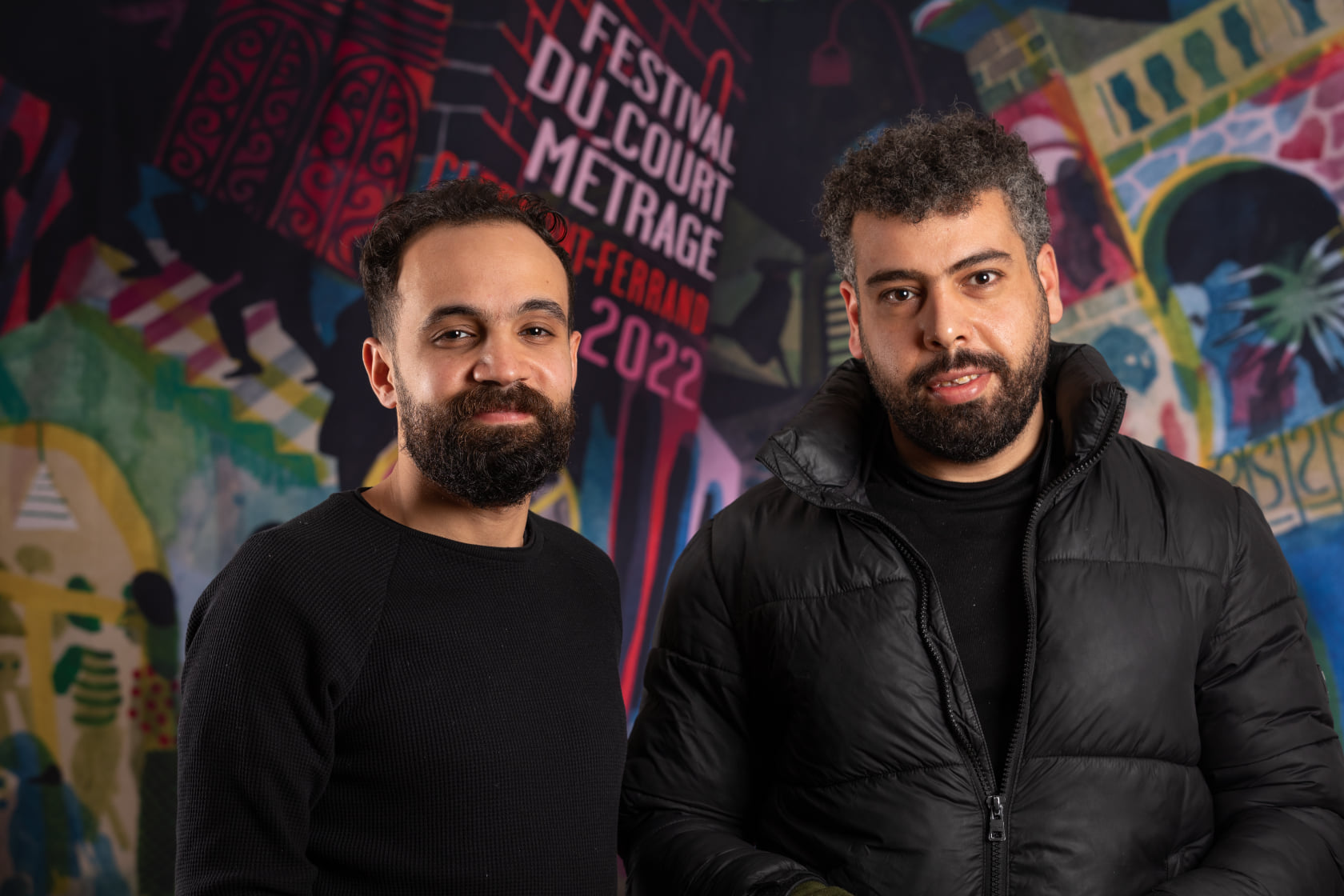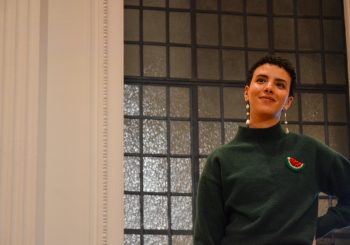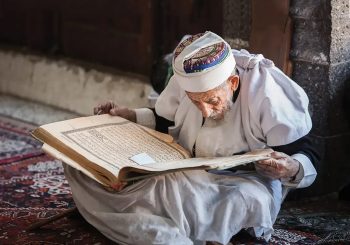The Clermont-Ferrand International Short Film Festival is a world-renowned short film festival. The roots of the festival were planted in 1981 when the association “Sauve qui peut le court métrage” realized there was a need for a platform for short films.
Throughout the decades, the festival has grown substantially, having now become the second-biggest film festival in France after the Cannes Film Festival in terms of audience and the presence of film professionals. It is one of the most, if not the, most highly regarded festivals that focus solely on short films and it attracts emerging filmmakers and talents from around the world, as they seek to showcase their work to audiences and meet future collaborators.
As a filmmaker myself, I’d always been interested in attending but never took the decision to do so. However, this year, when I heard that three Egyptian films were selected – CAI – BER, Khadiga, and Microbus – I decided to spontaneously book a trip from Paris to France’s Auvergne region where the festival is held.
When I arrived in Clermont Ferrand, it was already night. I walked through the foreign streets up to L’Univers, the restaurant that serves as the main meeting point for all the festival attendees. Suddenly, I heard the familiar sound of Egyptian Arabic. I turned around to find the team of CAI – BER sitting nearby: the director Ahmed Abdel Salam, the film’s producer, Joseph Adel, and Nagat, their friend who inspired the story behind the film.

CAI – BER won the El Gouna Star for the Best Arab Short Film at the latest edition of the El Gouna Film Festival. The film tells the story of a young Egyptian woman’s last night in Cairo, ahead of immigrating to Berlin. Nour, the protagonist, played by none other than Mariam el Ferjani, spends her last night in Cairo dancing at an underground techno party. However, her night takes a turn for the worse when she realizes that she doesn’t have her passport on her. While on a quest to find it, her partner, Youssef, played by Ibrahim el Naggary, finds out that she had hidden from him the fact that she was intending to stay in Berlin indefinitely.
The film, which was Abdel Salam’s graduating project from the MET film school in London, which he attended as a Chevening scholar, was well received by the audience in France. During the Q&A session after the film, Abdel Salam explained how, when members of his generation in Egypt are asked what are their main ambitions for the future, most of them answer that it is to start a new life abroad. He explained how the story is inspired by Nagat.
“She’s in the audience tonight, and I want to tell her that she’s the bravest woman I know,” Abdel Salam added. I then proceeded to ask him why the images in the film seem more reminiscent of Berlin than Cairo, even though the story takes place entirely in the Egyptian capital. Abdel Salam replied that it was a choice he made in order to reflect how, even when they are still in their home country, Egyptian youth try to mimic the lives they imagine for themselves abroad. The Berlin-esque party is thus a representation of their desperate attempts to escape their reality.
Khadiga, the second Egyptian film I had the pleasure of seeing at Clermont-Ferrand, also deals with the story of a young woman (or “a child,” as the director would correct me as we discuss the film) trying to escape from a suffocating reality, though its story is completely different from CAI – BER and quite unexpected. Both films do, however, share the same cinematographer, Mostafa El Kashef, who has been behind the camera for some of the most successful Egyptian short films in recent years.
Directed by Morad Mostafa and produced by Sawsan Yusuf, the film tells the story of Khadiga, a young mother of 18 who lives alone with her baby after her husband leaves her to go work in another city. We follow her as she goes about her day and makes her way through the hustle of Cairene streets.
Mostafa is a veteran of the Clermont Ferrand festival, having been previously selected in 2021 for his film What We don’t know about Mariam (2021) and in 2020 for his film Henet Ward (2020).

During the Q&A session for Khadiga, the audience was most curious about the unexpected twist in the middle of the film, when Khadiga throws her baby into the Nile. When responding, Mostafa claimed he wanted to portray something that wasn’t rationally explainable. I thus proceeded to comment about the fact that Mostafa did a great job at making Khadiga’s surroundings suffocating — the film has a square aspect ratio, almost all the shots are close-ups, and Khadiga feels almost constantly surrounded by people and movement. Seeing her carry a baby within this context makes even the viewer feel suffocated by this additional weight she has to carry. Once she throws the baby away, we feel relieved, like she does. But as her day goes on, and she sees her mother, the weight comes back — but this time, it comes from within her. It is the weight of the decision she took. Mostafa commented saying that his work with sound designer Moustafa Shaaban contributed to creating this suffocating atmosphere.
The director-producer duo Mostafa & Yusuf is already moving on to their next project, still centered around a female protagonist. The feature film, Aisha Can’t Fly Anymore, will be produced by Mohamed Hefzy’s Film Clinic and Daniel Ziskind as an associate producer.
Almost non-surprisingly, the third Egyptian film selected at the festival also centered around a female protagonist. Microbus (2021) directed by New York-based director Maggie Kamal, was a part of the “African Perspectives” section at the festival. The film tells the story of a student’s journey home from university. When the student’s brother is unable to pick her up, she decides to take a microbus instead. The film deals with sexual harassment, reminiscent of other Egyptian films such as Cairo 678 (2010). The film stars Egyptian actress Dalia Shawky.
Microbus Trailer- A short film by Maggie Kamal from maggie Kamal on Vimeo.
During a discussion at L’Univers, Kamal confided in me her main motivation to make this film – which was her graduating thesis film from the City University of NY. She shared how when pitching a number of ideas to her classmates and professors, the professor told her the idea for Microbus was a little too personal and too specific to Egypt. He suggested she’d be better off choosing a more universal story. In response, the other women in the class, from all around the world, immediately replied saying that they’d lived through similar experiences before. This made Kamal all the more motivated to bring this important issue to the light.
Microbus will be having its Egyptian premiere at the upcoming edition of the Aswan Women’s Film Festival.
The Clermont Ferrand Festival’s selection included a number of other Arab short films, including most notably Rakan Mayasi’s Trumpets in the Sky and Warsha by Dania Bdeir, which premiered at the Sundance Film Festival in the United States.
Though short films have usually been relegated to film festivals and have always been considered non-rentable, they are gaining popularity in the industry today, as short-form content is more and more in demand. In France, key players such as the Centre National du Cinema and Canal + have been key in creating this shift. In the MENA region, platforms such as VIU and foundations such as AFAC are helping fund short films from the region.







Comments (5)
[…] […]
[…] […]